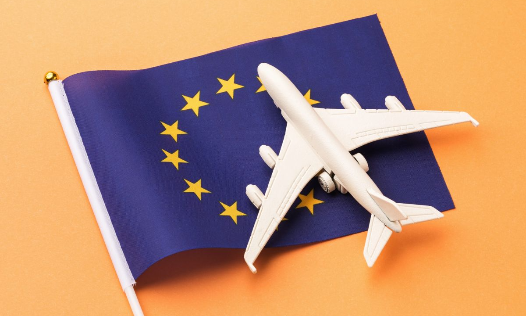Payment is being processed. Please do not refresh or close this page until your payment is complete.
 Book an Appointment
Book an Appointment

The European Union plans to revise its visa suspension mechanism in 2025, potentially ending visa-free travel for 61 countries. This move targets irregular migration, hybrid threats, and citizenship-by-investment schemes.
The European Union is planning to set to implement stricter rules regarding visa-free travel this year, potentially impacting numerous countries and future travel plans. These proposed changes could make it easier for the EU to suspend visa exemptions currently enjoyed by citizens of 61 nations.
The EU designed the plan to enhance control over migration and national security, affecting both candidate states and other visa-exempt nations. Travellers from these countries, as well as those from EU candidate nations, should take note of these significant developments.
Who Could Be Affected?
The proposed changes could impact travellers from as many as 61 countries currently benefiting from visa-free access to the Schengen Zone. These include:
North America & Caribbean
United States, Canada, Mexico, Bahamas, Barbados, Saint Kitts and Nevis, Saint Lucia, Saint Vincent and the Grenadines, Dominica, Grenada, Antigua and Barbuda
Latin America
Argentina, Brazil, Chile, Colombia, Peru, Paraguay, Uruguay, Venezuela, Panama, Costa Rica, El Salvador, Honduras, Guatemala, Nicaragua
Europe (Non-EU)
United Kingdom, Georgia, Ukraine, Moldova, Albania, Bosnia and Herzegovina, Serbia, Kosovo, North Macedonia, Montenegro, Armenia, Azerbaijan, Monaco, San Marino, Andorra, Holy See
Asia-Pacific, Africa & Indian Ocean
Japan, South Korea, Singapore, Israel, UAE, East Timor, Brunei, Malaysia, Macao, Hong Kong, Australia, New Zealand, Kiribati, Micronesia, Marshall Islands, Samoa, Tonga, Solomon Islands, Tuvalu, Nauru, Mauritius, Seychelles, Palau
These countries currently enjoy visa-free access to the Schengen Area, but the new rules could allow the EU to revoke that status more easily if they meet certain conditions.
Why Is the EU Cracking Down?
The EU’s revised visa policy stems from several key concerns:
• Irregular Migration: Despite a 31% drop in irregular border crossings in Q1 2025 (down to 33,600), the EU remains cautious.
• Security Threats: “Hybrid threats,” such as those allegedly posed by Russia and Belarus, involve the use of migration as a political tool.
• Golden Passport Schemes: Citizenship-by-Investment Programs, also known as “golden passports,” are viewed as potential backdoors to EU residency.
• Human Rights and Rule of Law: Visa suspensions could also be triggered by serious human rights violations or noncompliance with international legal rulings.
What Are Hybrid Threats and Why Do They Matter?
A hybrid threat combines political, economic, and military tactics to destabilise a region. In the EU’s case, it refers to the alleged strategy by some non-EU nations of directing migration flows toward EU borders to apply political pressure.
It is worth noting here that Belarus and Russia reportedly used this tactic by pushing migrants from Africa and Asia toward Lithuania and Poland, prompting the EU to rethink its border control and visa policies.
Citizenship-by-Investment: A Red Flag
Countries offering Citizenship-by-Investment (CPI) programs could find themselves at odds with the EU’s new stance. These schemes, which allow wealthy individuals to gain citizenship through financial investment, raise security and corruption concerns within EU institutions.
Under the new legislation, the existence of such programs may be grounds for halting visa-free travel, even if the country otherwise maintains strong diplomatic relations with the EU.
Suspension Rules: How Will They Be Applied?
The updated framework will give EU member states more flexibility. A qualified majority vote could now trigger visa suspensions, eliminating the need for unanimous agreement and making them significantly easier to implement.
Triggers for suspension could include:
• A surge in irregular migration
• Threats to public order or internal security
• Deteriorating diplomatic relations
• Breaches of international or human rights law
What This Means for Travellers
If implemented, the new rules could mean travellers from affected countries will need to apply for a Schengen visa, complete with documentation, fees, and wait times. This could disrupt business travel, tourism, and family visits.
While the European Union hasn’t announced any immediate suspensions, the legislation signals that it is taking a stricter, more cautious stance on visa liberalisation.
Final Thoughts
The European Union’s proposed visa suspension overhaul marks a turning point in its approach to migration, security, and international cooperation. While the exact impact remains unclear, travellers from affected countries should monitor updates and prepare for possible changes to their visa status in 2025.
Source: https://travelobiz.com/eu-to-tighten-visa-free-travel-rules-for-61-countries-in-2025/